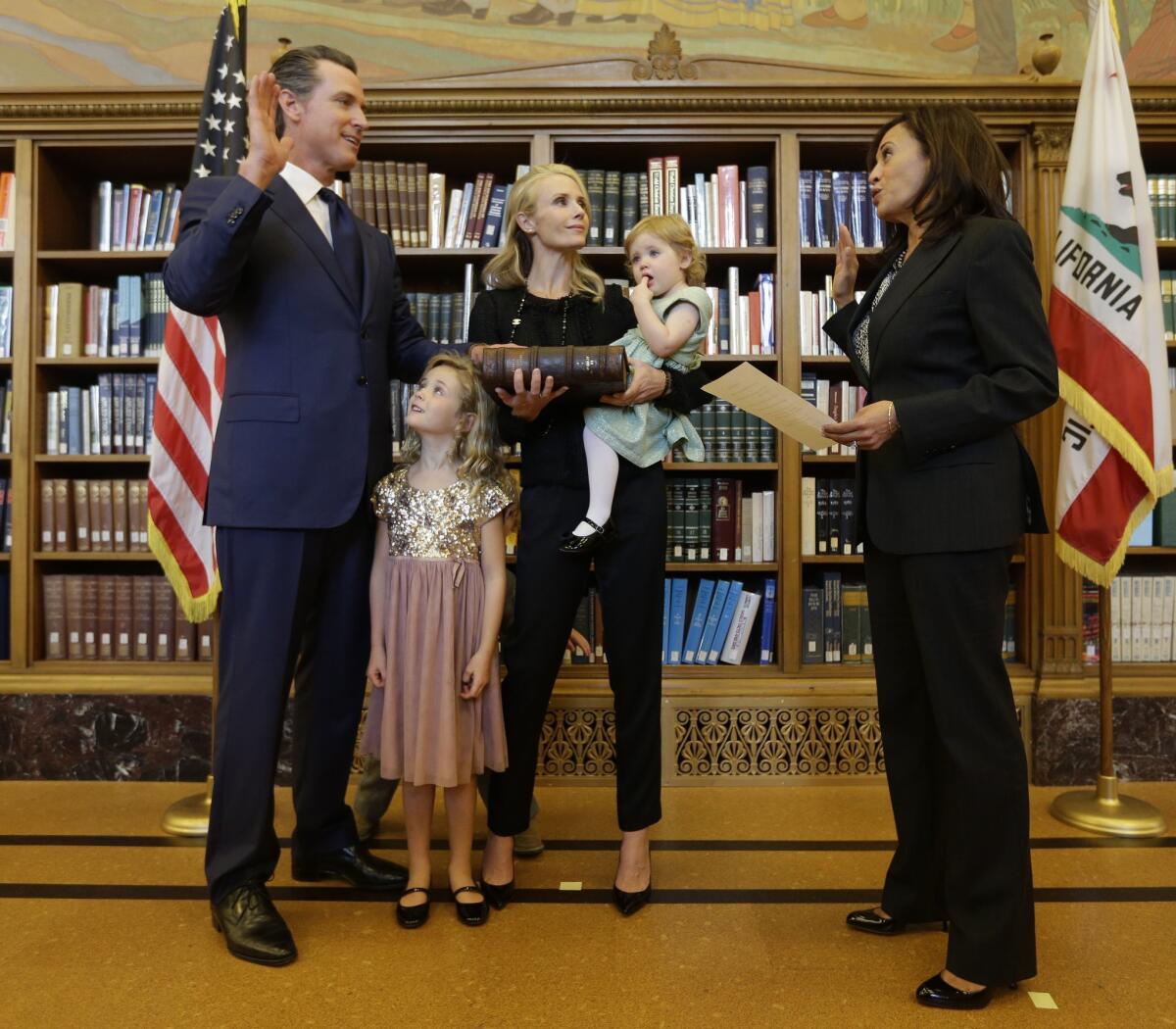Political deal on California offices could hold peril for Newsom, Harris

- Share via
The planned retirement of Sen. Barbara Boxer and rare opportunity to pursue an open U.S. Senate seat in California has produced an avalanche of speculation and enough what-ifs to stretch from Eureka in the far north to Yucaipa in the south.
Most of that conjecture has centered on Lt. Gov. Gavin Newsom and Atty. Gen. Kamala Harris, who share, along with relative youth, good looks and irrepressible ambition, the same geographic and donor base in the San Francisco Bay Area.
The two liberal Democrats even have the same set of political advisors, who guided them from local office, as San Francisco mayor and district attorney, respectively, to their statewide positions in Sacramento.
This has led to a widely held belief that the pair will sit down, in the manner of conquerors dividing their spoils, to figure out who seeks Boxer’s seat in 2016—a seeming shoo-in for any Democrat—and who will run to succeed Gov. Jerry Brown in 2018, or, possibly, pursue another open Senate seat should Dianne Feinstein retire when her term ends in three years.
Newsom, 47, and Harris, 50, have had a cordial but not especially warm relationship; their close quarters and parallel ascent up the political ladder have kept the two in steady competition, one eye cast warily on the other.
It makes perfect sense, though, for one to stand aside in the Senate race, lest each seek the office and, in a crowded field, thwart the efforts of both by splintering the Northern California vote. The huge question under that scenario is who would defer to whom, averting a collision of egos and all that wasted exertion.
A decision by each is expected in fairly short order.
But it’s a tricky business divvying up public offices, as if they were a baton that can be willfully passed back and forth between contestants.
In California there is a precedent of sorts, going all the way back to 1958, with rather poor results.
“The Big Switch,” as it came to be called, was a proverbial backroom deal involving two of California’s most powerful Republicans, Gov. Goodwin Knight and U.S. Sen. William Knowland.
Knowland, scion of a newspaper publishing family, was eyeing a run for president in 1960 and presumed the governor’s office would a better jumping-off point. Knight was pressured by then-Vice President Richard Nixon, among others, to clear the way for Knowland—averting a destructive GOP primary--by instead running for his Senate seat.
The transactional tradeoff, which became an issue in their respective campaigns, did not end well for either the GOP or the two lawmakers. Knight lost the Senate race and Knowland was defeated by then-Atty. Gen. Pat Brown—Jerry’s dad—marking an epochal shift in political power and laying the groundwork for the rise of the moribund California Democratic Party.
Whatever arrangement gets worked out between Newsom and Harris—if, in fact, they confab and come to some arrangement--would eventually have to pass muster with California voters, who don’t much care to be taken for granted.
To the victor go the spoils; but any presumption or perceived arrogance on the part of the two top candidates could spoil the political prospects for both.
You don’t have to make any backroom deals to follow @markzbarabak on Twitter
More to Read
Sign up for Essential California
The most important California stories and recommendations in your inbox every morning.
You may occasionally receive promotional content from the Los Angeles Times.














